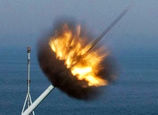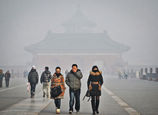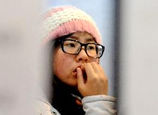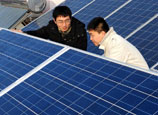
During the recent cold snap which gripped much of southern China in its icy clutches, many within the public began calling for local governments to introduce the same sort of low-cost public central heat supply systems that have been in place in many of the country's northern cities for decades.
In China's upper half, government-subsidized public heating systems circulate hot air generated at heating stations to most private homes. Over the course of five months, a person using such a system in Beijing could keep a 100-square-meter home heated at 20 C for between 2,500 yuan ($402.14) and 3,000 yuan. In comparison, a person living in the south may have to spend over 1,000 yuan per month to keep a similarly-sized space at the same temperature with isolated heating devices or free-standing air condition units when the mercury drops.
As winters below the Yangtze River become colder though, several local governments in the south have begun work to install central heating systems like those seen in the north. While work on such systems may silence the louder grumbles coming from the increasingly cold and dissatisfied public in the south, local governments would be better off if they just tried to lower people's out-of-pocket expenditures on heating.
Although people in the north can turn off or lower the heat coming from their public heating system, most choose to leave it running at all times. In many apartment buildings and compounds, it could take several hours to get a room back up to a comfortable temperature if the equipment producing heat is turned off. Currently, residential homes in the north account for about 40 percent of the country's overall energy consumption every year. If one also factors in heating delivered to public facilities and commercial properties, the north consumes well over half of China's overall energy output annually.
Bringing such an inefficient system into the south would invariably increase China's energy usage.
Of course, there is the obvious fact as well that cold temperatures rarely stick around for as long in the south as they do in the north. It may be cold for a few days, or even a few weeks, but never for months on end - making it seem like a huge waste of time and money to install central heating systems.
In the end, local governments would be better off delivering direct subsidies to households when temperatures drop below a certain threshold for a given length of time. Such a strategy would save unnecessary energy use and lower fiscal spending on heating systems.
The author is an economic commentator. sxj.chn@gmail.com
















 China's social trust index declined further last year, according to the Annual Report on Social Mentality of China 2012
China's social trust index declined further last year, according to the Annual Report on Social Mentality of China 2012


![]()
